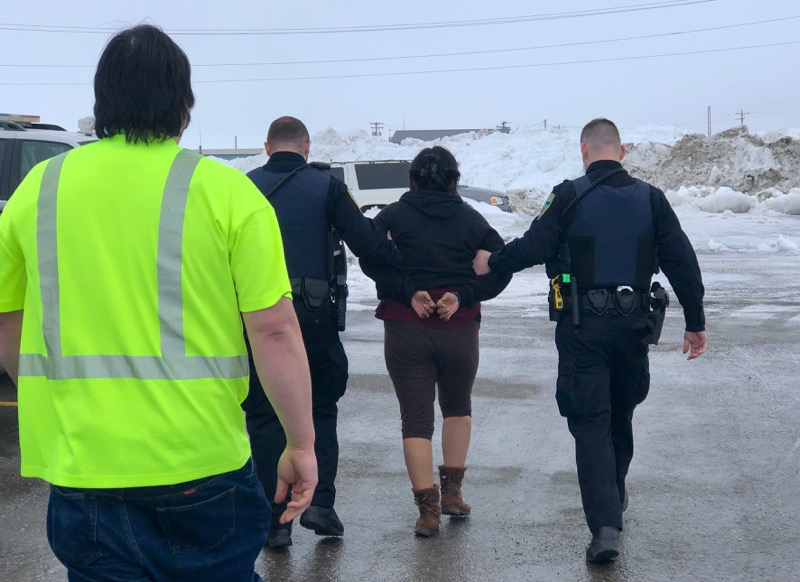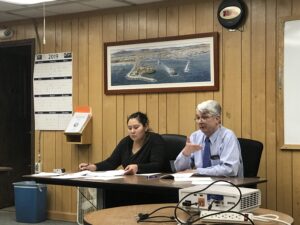During Governor Mike Dunleavy’s visit to Nome yesterday, which was one of his scheduled “roadshow” stops around the state, he was greeted at the airport by Brenda Evak, who was ultimately taken away in handcuffs for alleged disorderly conduct.
According to witness accounts, Evak was loudly speaking to the governor upon his arrival into the terminal. She shouted the words, “what do we do when our lands are threatened? We stand our ground.”
After this point, two Nome Police officers escorted Evak outside and arrested her for disorderly conduct. Witnesses say violence was not used by either party, nor did they threaten each other with physical harm.
According to a statement from the Nome Police Department (NPD), Evak was closing the distance between herself and Governor Dunleavy, while pointing at him and balling her fist. NPD says Evak was asked to leave the airport but refused, so the officers had to escort her outside.
Evak was released from custody later that afternoon, and she attended the public forum hosted by Americans for Prosperity and Governor Dunleavy at Old St. Joe’s.
Senator Donny Olson of Golovin released a statement yesterday supporting Evak’s right to free speech, saying, “it is outrageous that an Alaskan expressing an opinion to the Governor is treated this way. Alaskans are angry, and they feel like their voice is not heard.”
A fellow legislator, Representative Neal Foster of Nome, spoke with APRN earlier today regarding the potential jail time Evak faces.
“If it were up to me, I would probably say let’s not prosecute this situation; there was no violence. It appears this person has no record, so I would probably publicly state that people have a right to say what they want, and we need to be more measured, I suppose, in how we do that. But sometimes, people become passionate, and I understand that.”
The City of Nome made an announcement after Evak’s arrest, saying the City Council supports freedom of speech; however, when another party rents city facilities like Old St. Joe’s, they have control over who can access the rented facility. Gathering and protesting in public places like Anvil City Square is still allowed, but that cannot interfere with access to or from OSJ.
When it comes to protesting at airports, though, the Supreme Court has ruled that First Amendment rights under the U.S. Constitution, such as free speech, are somewhat limited.
As of this morning, charges from this incident are considered pending or not filed against Evak. Nome’s District Attorney John Earthman is reviewing the charging document.
Image at top: Evak was escorted away from the airport in handcuffs by Nome Police. Photo provided by Carol Gales (2019).





